This article gives the RIPE NCC perspective on Iraq, which shows among other interesting stats that over a third of members there have joined in the past two years.
The RIPE NCC service region comprises over 75 countries and it can sometimes be the case that our staff are unable to visit a country in person due to political or security reasons. But we don't let that stop us from trying to meet our members from those countries to see how we can help them.
On 3 April 2017, we will host a member lunch in Amman, Jordan that is targetted at Iraqi member organisations who are able to send staff to meet us there. The lunch is also open to members from surrounding countries, so in this article we focus on Iraq and compare the data from there to Jordan, Lebanon and Syria.
Please note that this article, unless otherwise noted, shows a snapshot of the situation as seen on 21 March 2017. However, in most cases we also provide a link to the most up-to-date information.
Iraq at a glance
| Number of ASNs assigned | 94 |
| Number of Local Internet Registries | 97 |
| Number of IPv4 allocations | 139 |
| Number of IPv4 assignments | 3 |
| Number of IPv4 addresses allocated | 657,152 |
| Number of /22s allocated from the last /8 | 79 |
| Number of LIRs with IPv6 allocations | 59 |
| Size of IPv6 allocations (/32s) | 284 |
| Number of IPv6 assignments | 0 |
| RPKI with route object authorisation (ROAs) | 22 |
Membership growth
In Figure 1, you can see the growth of the number of Local Internet Registries (LIRs) in Iraq and its neighbouring countries from 2010 to 2017. As of 28 March 2017, there are 97 LIRs registered in Iraq.
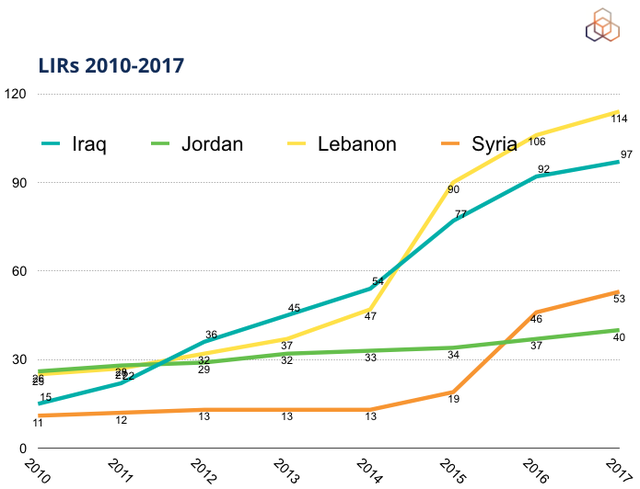
Figure 1: Number of LIRs in Iraq and neighbouring countries from 2010-2017
For comparison, Figure 2 shows the growth in the number of all LIRs registered with the RIPE NCC since 2008. There are currently over 15,500 LIRs registered with the RIPE NCC. Note that the number for 2017 shows the figure at 28 March 2017.
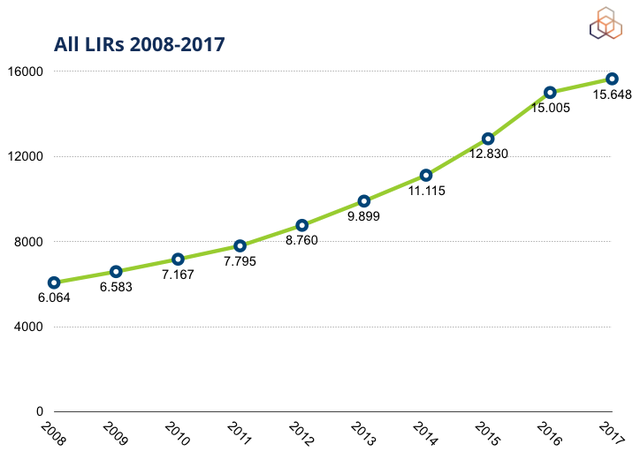
Figure 2: Number of all LIRs in the RIPE NCC service region from 2008-2017
The next figure shows the age of the LIRs in Iraq. You can see that over one-third of LIRs (38 of 97) were set up in the last two years. The figure below that shows the age of all RIPE NCC LIRs.
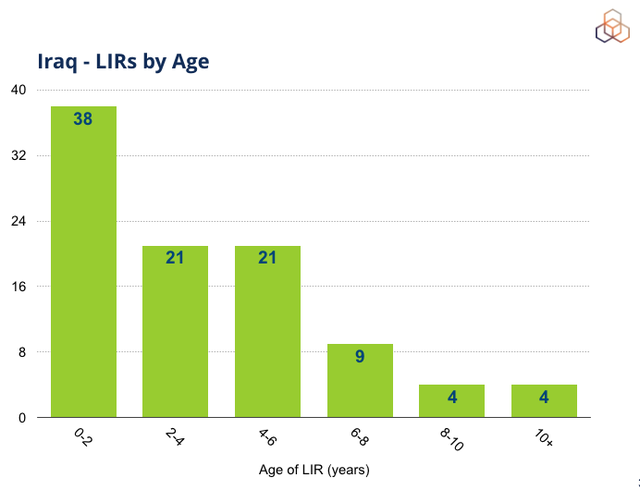
Figure 3: Age of LIRs in Iraq
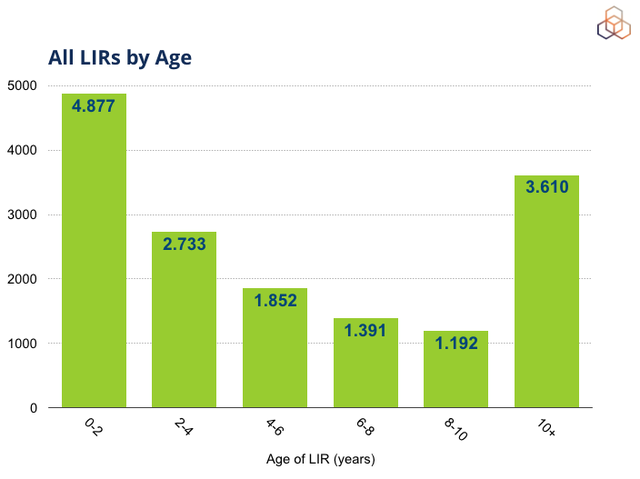
Figure 3B: Age of All LIRs
IPv6 Deployment in Iraq
IPv6 RIPEness is a rating system that awards stars to LIRs in the RIPE NCC service region depending on indicators of IPv6 preparedness. Stars are awarded for:
- Having an IPv6 allocation or assignment from the RIPE NCC
- Making the IPv6 prefix visibility in the Routing Information Service (RIS)
- Having a route6 object registered in the RIPE Database
- Having reverse DNS delegation set up for the IPv6 allocation
Figure 4 shows the situation in Iraq. You can see that 62% of all LIRs in the country have an IPv6 allocation and 25 of those LIRs have done something with that allocation. 37 LIRs do not have an IPv6 allocation yet.
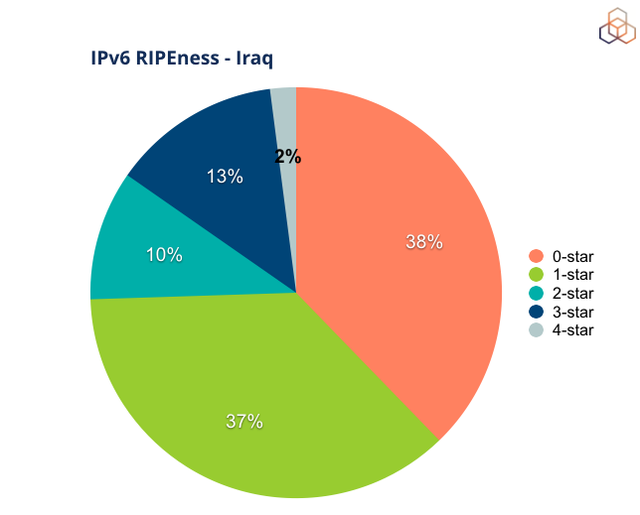
Figure 4: IPv6 RIPEness in Iraq
In Figure 5, you can see the situation for all LIRs in the RIPE NCC service region. 75% of all LIRs have an IPv6 allocation, of which around 46% have started using it one way or another (by meeting one of the criteria listed above).
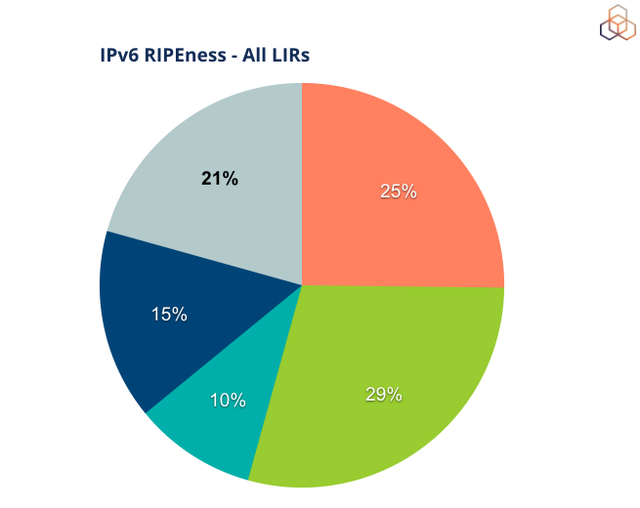
Figure 5: IPv6 RIPEness for all LIRs
In Figure 6, we show the number of ASes announcing one or more IPv6 prefixes in Iraq and surrounding countries. You can find the current status of these countries using the IPv6-Enabled Networks tool. This tool also allows you to search for other countries or regions worldwide.
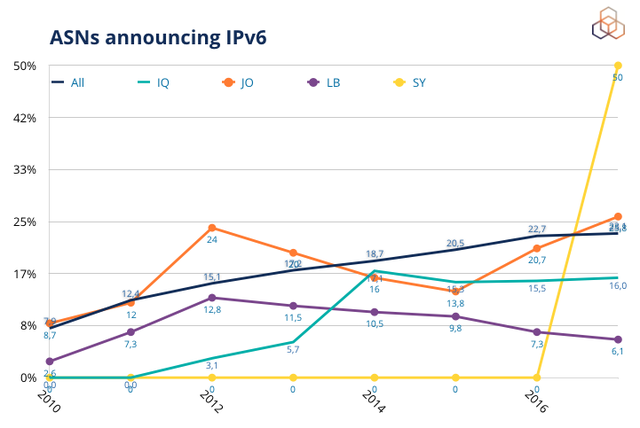
Figure 6: ASes announcing one or more IPv6 prefixes in Uzbekistan and neighbouring countries
Country Routing Statistics
Figure 7 visualises the development of the IPv4 and IPv6 prefixes and ASes in Iraq over time.
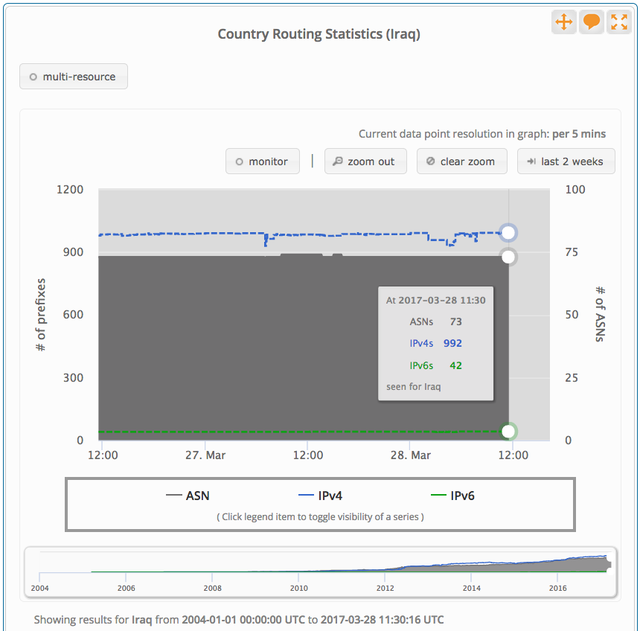
Figure 7: RIPEstat country routing statistics in Iraq
You will notice that the number of IPv6 prefixes and the number of ASNs in this widget are not consistent with the number shown in the table above. The table shows those allocations and assignments made by the RIPE NCC to organisations registered in Iraq. The RIPEstat widget on the other hand shows what's actually happening in the real world: The 139 IPv4 allocations made by the RIPE NCC have been de-aggregated into 992 individual prefixes that are announced by 73 ASes (instead of the 94 ASes assigned by the RIPE NCC to organisations in Iraq).
You can see the current status in the RIPEstat country routing widget. You can also use that widget to compare multiple countries.
RIPE Atlas
RIPE Atlas is a global network of probes that measure Internet connectivity and reachability, providing an unprecedented understanding of the state of the Internet in real time. The more probes that are distributed and connected worldwide, the more useful data can be collected that can then be used by network operators and researchers to analyse the state of the Internet.
The embedded RIPEstat widget below shows the number of RIPE Atlas probes in the region. Green dots indicate connected probes, yellow dots show disconnected probes and red dots indicate those that are abandoned (i.e., not connected for more than three months).
If you have a RIPE Atlas probe, please double-check it is connected properly so that the community can benefit from the data it produces.
RIPEstat widget will be rendered here
Figure 8 shows the actual number of RIPE Atlas probes in Iraq, Jordan, Lebanon and Syria.
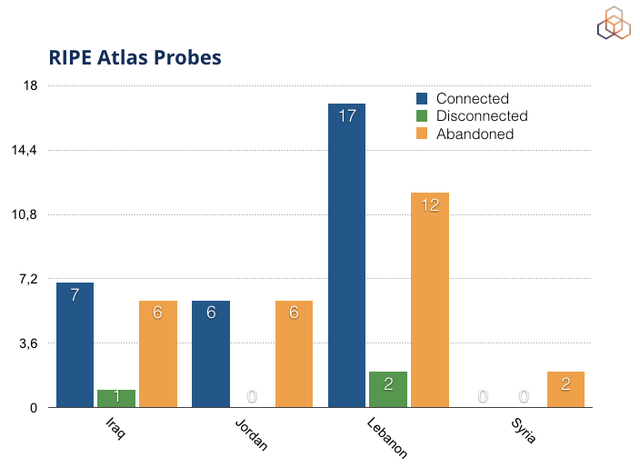
Figure 8: Number of RIPE Atlas probes in Iraq and neighbouring countries
Participation at the General Meeting
The General Meeting (GM) is the forum where, twice a year, RIPE NCC members can register to have their say on how the RIPE NCC operates. All members are encouraged to register and cast their vote on such matters as the RIPE NCC Charging Scheme and who will represent them on the RIPE NCC Executive Board.
At the upcoming GM on 22 May 2017, there will be an election for three seats on the Executive Board and members will vote on the Charging Scheme for 2018. Electronic voting and remote participation options are available to all members.
Almost 1,200 members registered for the last GM in October 2016. Of these, 3 members from Iraq registered to participate, or 3.33 per cent of the active members in Iraq at the time of the GM. Figure 9 shows the registration numbers for Iraq since electronic participation became available in 2014.
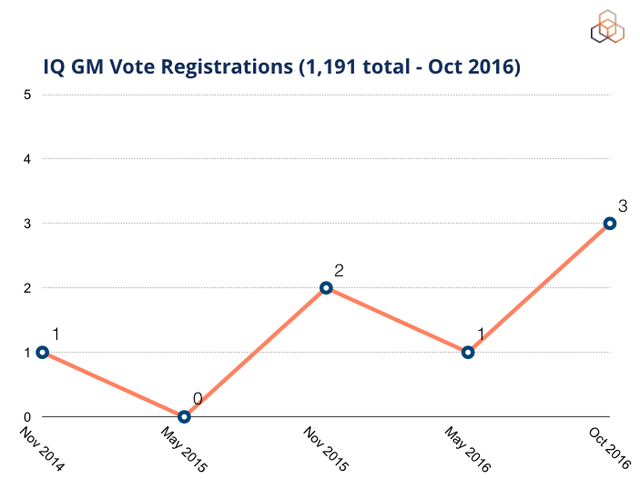
Local Networking Communities
The Middle East Network Operators Group (MENOG) offers a great way for operators from Iraq to connect with the networking community from their own country and the wider Middle East region. The MENOG mailing list provides regular updates on what's going on in the Middle East and allows operators to discuss Internet-related issues in the region.
The MENOG 17 Meeting takes place in Muscat, Oman from 19-20 April and will feature presentations from local Internet experts as well as representatives from the global Internet community.
Conclusion
The last two years have seen strong membership growth in Iraq, with over a third of members having joined the RIPE NCC in the last two years. Similar rates of growth can be seen in neighbouring Lebanon and Syria. 62% of LIRs have an IPv6 allocation in Iraq and it will be interesting to see if the number of LIRs deploying IPv6 grows in the coming years.
If there is other information you'd like to see, or you have specific comments on the Iraq information provided, please let us know in the comments below.

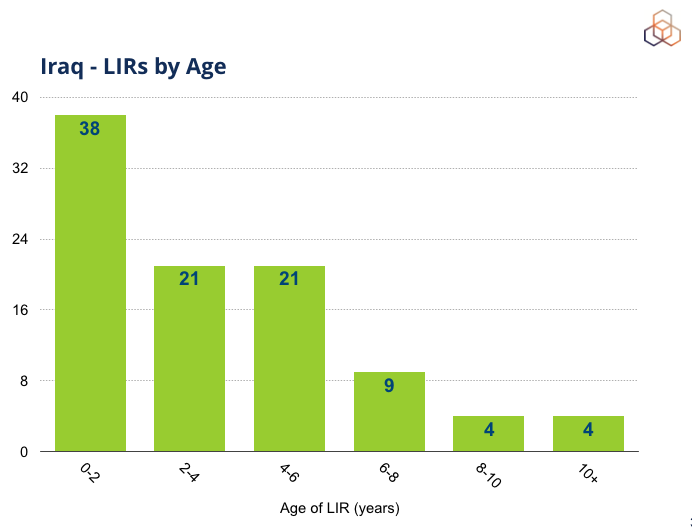
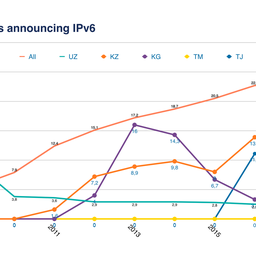
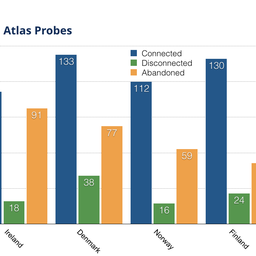



Comments 0
The comments section is closed for articles published more than a year ago. If you'd like to inform us of any issues, please contact us.